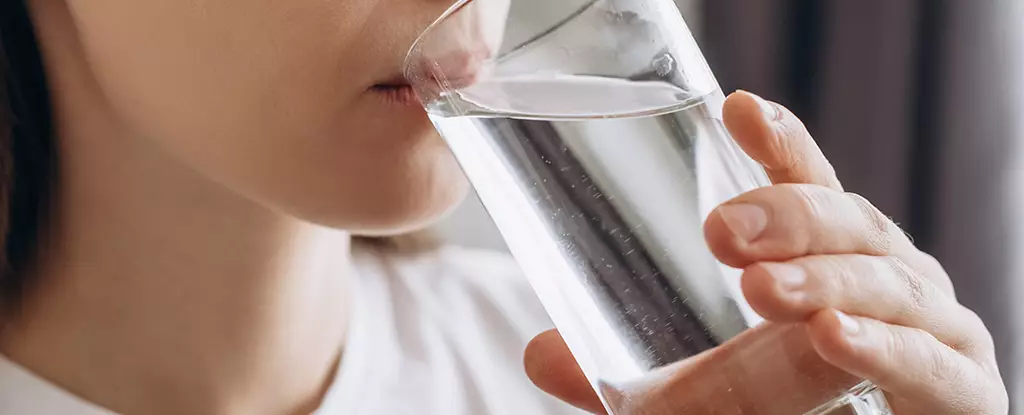The issue of microplastics infiltrating our bodies through our food and drink is a growing concern in today’s society. Scientists have recently discovered a straightforward and effective method for removing these tiny plastic particles from water, potentially reducing our exposure to them significantly. This breakthrough could have far-reaching implications for our health and well-being.
Researchers from Guangzhou Medical University and Jinan University in China conducted experiments on soft water and hard tap water to test the efficacy of removing nanoplastics and microplastics (NMPs). By adding these particles to the water, boiling it, and then filtering out any precipitates, they were able to eliminate up to 90 percent of the NMPs in some cases. The effectiveness of the process varied depending on the type of water used. This simple technique can be easily replicated in any kitchen, making it accessible to the general public.
Interestingly, the researchers found that hard tap water, which contains more minerals, was more effective at removing NMPs due to the formation of calcium carbonate deposits. These deposits, commonly seen in kitchen kettles, act as a trap for plastic particles, effectively removing them from the water. Even in soft water, where there is less calcium carbonate present, a significant portion of NMPs were still captured. The researchers suggest using a basic filter, like a stainless steel mesh, to remove any plastic particles encrusted with calcium carbonate.
Microplastics, such as polystyrene, polyethylene, and polypropylene, are present in potable tap water and are consumed by humans on a daily basis. By drinking boiled water, the researchers believe that global exposure to NMPs can be reduced, offering a potential long-term solution to this widespread issue. While the full extent of the health impacts of microplastics is still being researched, studies have already linked plastic consumption to changes in gut microbiome and antibiotic resistance. Boiled water could serve as a defense against these negative effects by keeping artificial materials out of our bodies.
The research team behind this study is calling for further investigation into the benefits of drinking boiled water as a means of reducing human exposure to NMPs. They believe that this simple yet effective strategy could have a significant impact on our overall health and well-being. By conducting more studies with a larger sample size, researchers hope to solidify the foundation for widespread adoption of this practice.
The presence of microplastics in our food and drink is a concerning issue that requires immediate attention. The discovery of the boiling technique as a means of removing these particles from water is a promising development in the fight against plastic pollution. By taking simple steps such as drinking boiled water, we can protect ourselves from the potential harm caused by microplastics and pave the way for a healthier future.


Leave a Reply